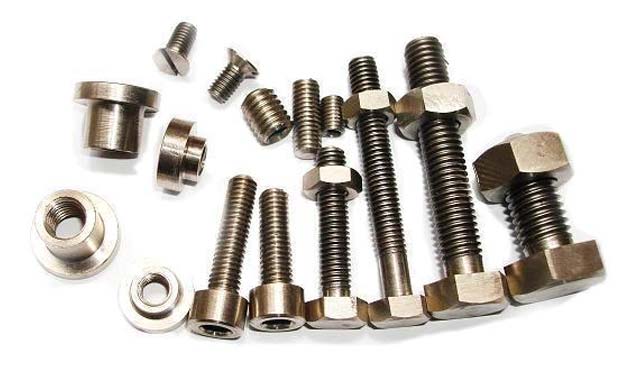- Contact Innally, Let you purchase forgings in China more favorable prices, products more assured!
- Hotline:+(86)15038323776 Email:innally@innally.com
Classification and use of fasteners
- Category: Rigging and fasteners, Titanium alloy forging
- |
- Date: 16/08/2023
fasteners play a vital role in the engineering field, they can ensure the stability, reliability and safety of mechanical equipment, but also can simplify the installation and maintenance process, improve work efficiency.
- On-demand customization
Product Details
Fasteners refer to various parts used to connect, fix or adjust the workpiece, common fasteners include screws, nuts, bolts, studs, washers, pins and so on. According to the use of different objects and uses, fasteners can be divided into the following categories: threaded fasteners: mainly including screws, nuts, bolts, studs, etc. By pairing the threads, a certain force is present between the two parts through rotation to achieve connection or fixing. Common uses include mechanical equipment assembly, structural connection, accessories fixing and so on.
Non-threaded fasteners: mainly include pins, pins, keys, circlip, retainer, etc. These fasteners are usually inserted, inserted, extruded and other ways to achieve connection or fixing effect, which is suitable for some occasions that need to be disassembled and adjusted frequently.

Pressure fasteners: mainly include spring washers, wave washers, etc. The fastness of fasteners is ensured by using the reverse pressure generated by fasteners when they are loose or vibrated. It is often used for anti-loosening, vibration elimination, sealing and so on.
Special fasteners: According to different use scenarios and requirements, there can also be some special fasteners, such as various special shapes, materials and surface treatments of screws, nuts, etc., for special environments or specific work requirements.
In short, fasteners play a vital role in the engineering field, they can ensure the stability, reliability and safety of mechanical equipment, but also can simplify the installation and maintenance process, improve work efficiency.
nannan
INNALLY mainly provides you with various types of cast and forged parts products. Welcome your inquiries! innally@innally.com
Related Products
Search
Forging center
- Steel forgings
- Aluminium alloy forging
- Titanium alloy forging
- Stainless steel forging
- Copper forging
- Automotive forgings
- Locomotive forging
- Bicycle forgings
- Motorcycle forging
- Rigging and fasteners
- Bearing forging
- Electric power fittings
- Marine forging
- Mechanical forgings for metalworking
- Mining machinery forgings
- Marine engineering forgings
- Construction machinery forgings
Popular product

© 2025. All Rights Reserved.






